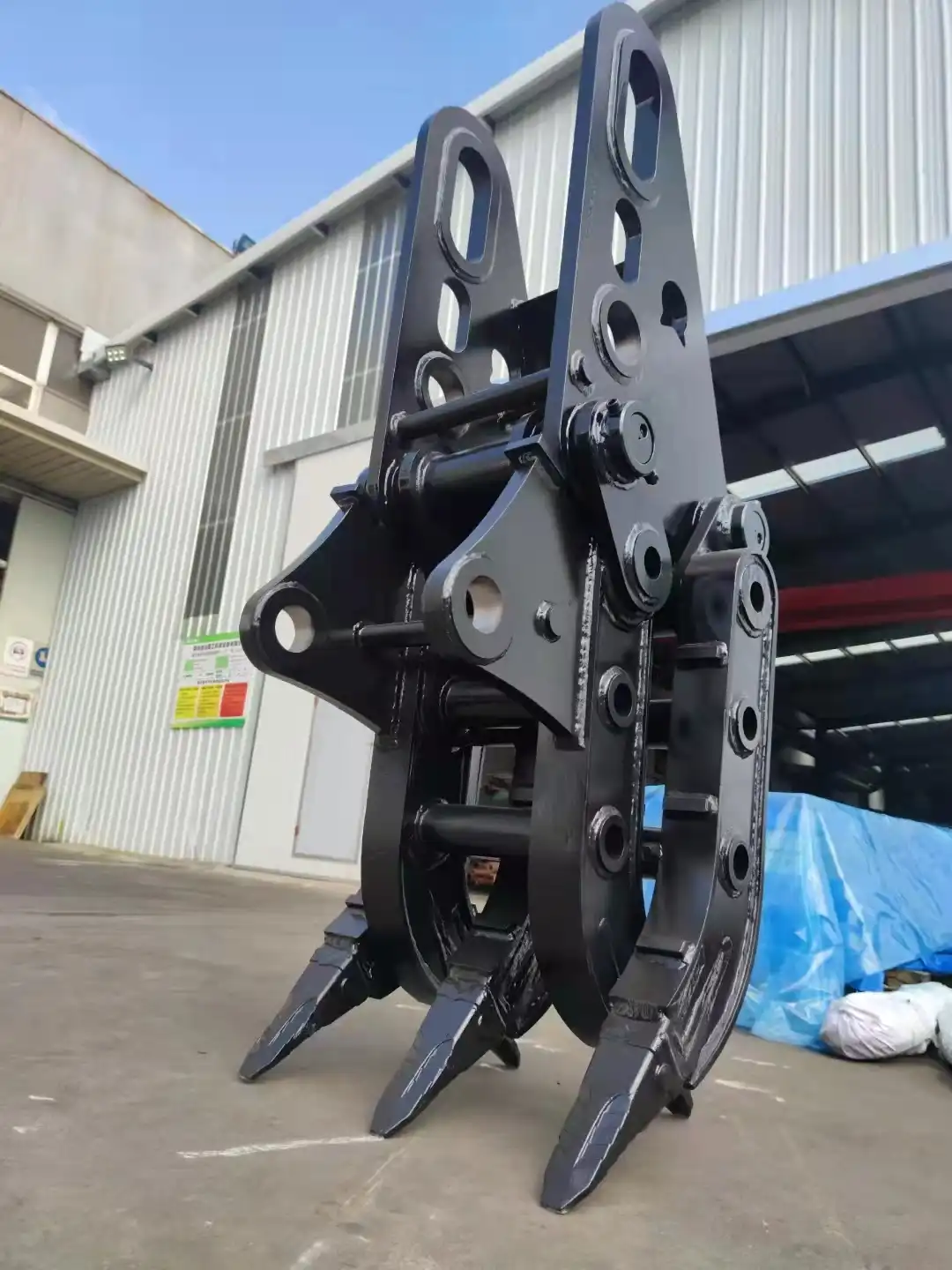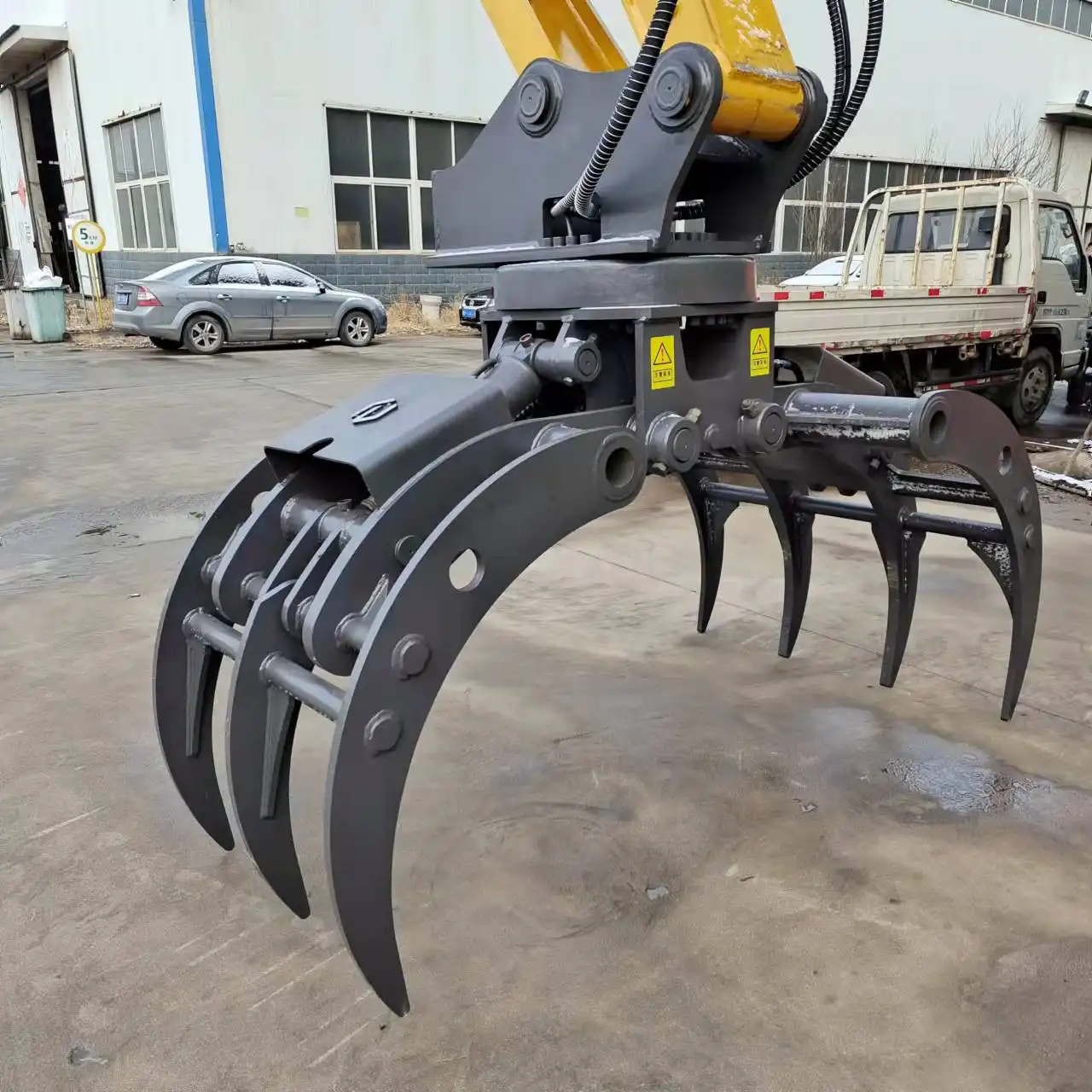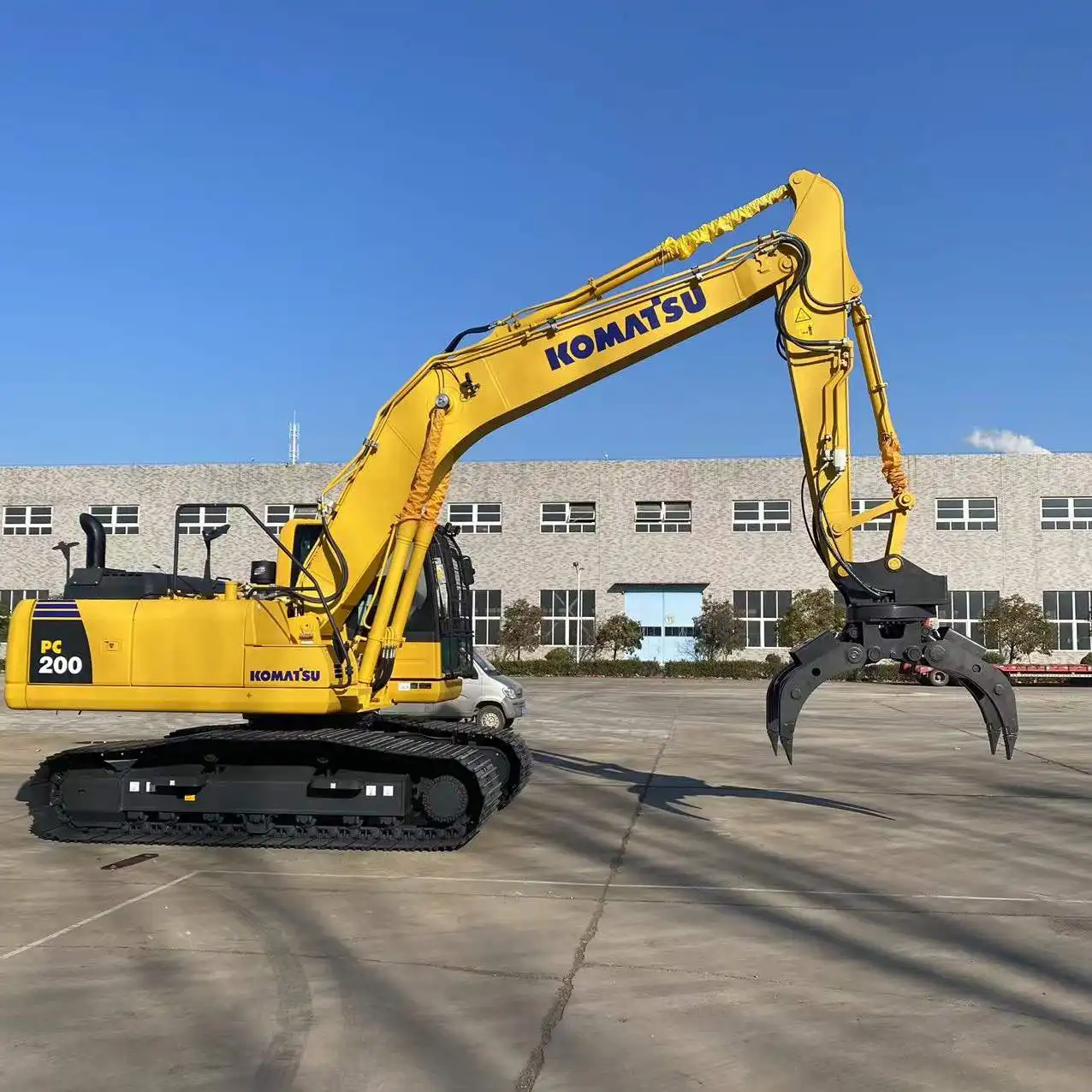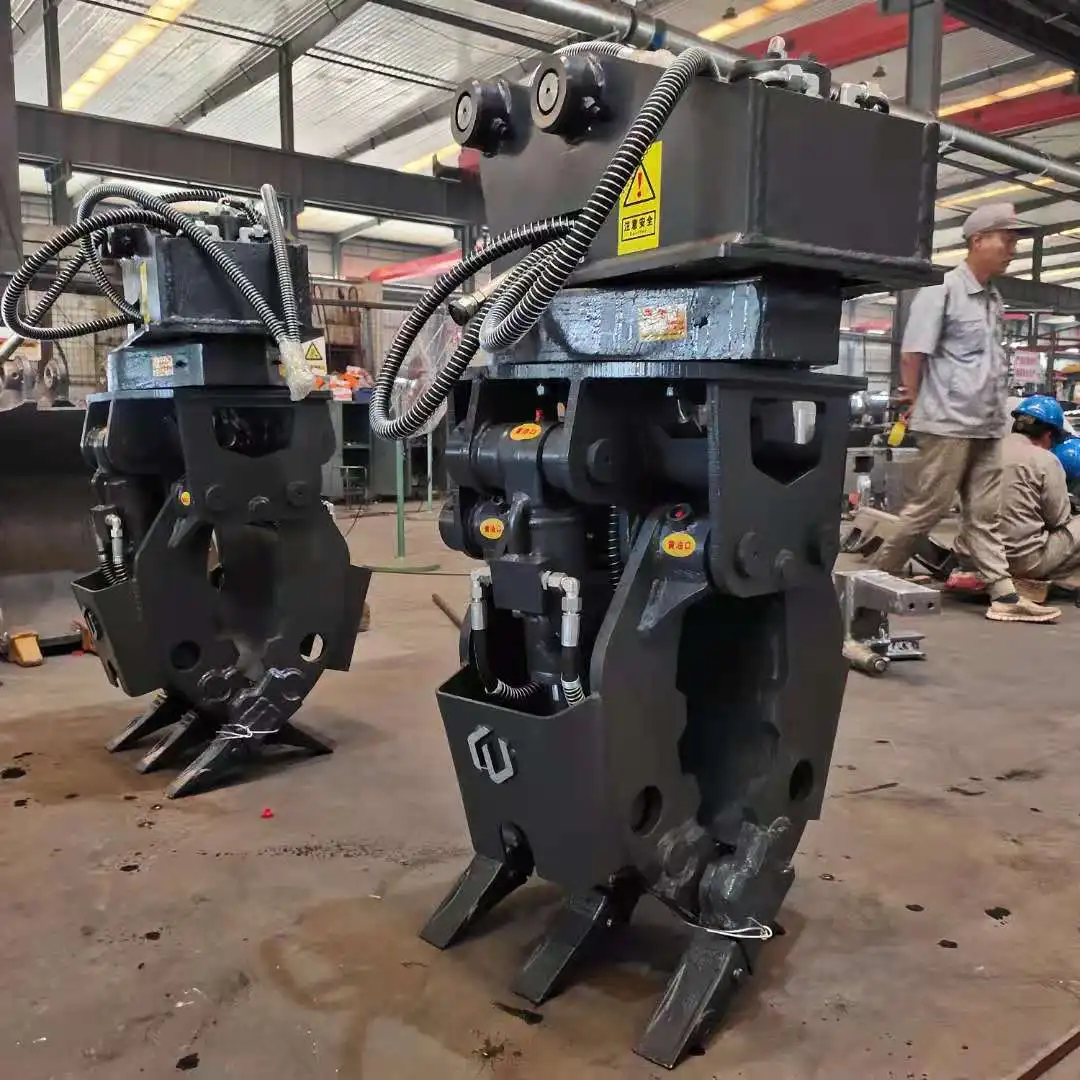How to evaluate the quality of excavator grippers from different suppliers?
When it comes to heavy machinery, the quality of components can make all the difference in performance, efficiency, and longevity. Excavator grippers, in particular, play a crucial role in various construction and demolition tasks. As such, selecting the right excavator gripper supplier is a decision that shouldn't be taken lightly. This comprehensive guide will walk you through the key factors to consider when evaluating the quality of excavator grippers from different suppliers, ensuring you make an informed choice for your project needs.
Key Quality Indicators to Assess When Buying Excavator Grippers

The first step in evaluating excavator grippers is understanding the essential quality indicators. These factors will help you differentiate between high-quality products and those that may not meet your expectations or project requirements.
1. Material Composition: The materials used in the construction of excavator grippers significantly impact their durability and performance. High-quality grippers are typically made from high-strength steel alloys that can withstand extreme pressure and resist wear and tear. When researching potential suppliers, inquire about the specific materials used in their products and how they compare to industry standards.
2. Design and Engineering: The design of the excavator gripper is crucial for its functionality and efficiency. Look for suppliers who prioritize intelligent engineering in their products. This includes features such as:
- Optimal tooth design for maximum grip and minimal material loss
- Balanced weight distribution for improved machine stability
- Streamlined shape to reduce drag and increase fuel efficiency
Ask suppliers about their design process and any unique features that set their grippers apart from competitors.
3. Manufacturing Process: The quality of the manufacturing process directly impacts the final product. High-quality excavator grippers are typically produced using advanced manufacturing techniques such as precision CNC machining, robotic welding, and heat treatment processes. Inquire about the supplier's manufacturing capabilities and quality control measures to ensure consistent product quality.
4. Performance Specifications: Reputable excavator gripper suppliers should be able to provide detailed performance specifications for their products. This includes information on:
- Maximum gripping force
- Operating pressure range
- Weight capacity
- Rotation capabilities
Compare these specifications across different suppliers to identify which products best meet your project requirements.
5. Compatibility and Versatility: High-quality excavator grippers should be designed with compatibility in mind. Look for suppliers that offer products compatible with a wide range of excavator models and sizes. Additionally, consider the versatility of the gripper – can it be easily adapted for different tasks or materials?
6. Safety Features: Safety should always be a top priority when evaluating heavy machinery components. Look for excavator grippers that incorporate safety features such as:
- Pressure relief valves to prevent overloading
- Anti-drop mechanisms
- Visibility enhancements for improved operator awareness
Ask suppliers about their commitment to safety and any specific safety features incorporated into their designs.
By carefully assessing these key quality indicators, you'll be better equipped to identify excavator gripper suppliers that offer superior products. Remember, a high-quality gripper not only enhances performance but also contributes to improved safety and longevity of your equipment.
Comparing Material Durability and Design Quality

Once you've identified potential excavator gripper suppliers and assessed their products based on the key quality indicators, it's time to delve deeper into material durability and design quality. These factors play a crucial role in determining the long-term value and performance of the gripper.
Material Durability:
1. Wear Resistance: The ability of the gripper to withstand abrasive materials and repeated use is crucial. Look for suppliers that use materials known for their excellent wear resistance, such as hardened steel alloys or those with specialized coatings. Ask for data on wear rates or case studies demonstrating long-term performance in challenging environments.
2. Corrosion Resistance: Depending on your work environment, corrosion resistance may be a critical factor. Some suppliers offer grippers with corrosion-resistant coatings or use materials naturally resistant to rust and oxidation. Consider the typical conditions in which the gripper will operate and choose accordingly.
3. Impact Strength: Excavator grippers often face high-impact situations. The material should have sufficient toughness to absorb shocks without cracking or deforming. Inquire about impact strength testing results or certifications that demonstrate the gripper's ability to withstand sudden forces.
4. Temperature Resistance: If your operations involve extreme temperatures, ensure the gripper materials can maintain their properties and performance across the expected temperature range. Some high-quality alloys offer excellent stability in both very cold and very hot conditions.
Design Quality:
1. Stress Distribution: A well-designed excavator gripper should distribute stress evenly across its structure. This reduces the risk of weak points and premature failure. Ask suppliers about their design methodologies, such as finite element analysis (FEA), used to optimize stress distribution.
2. Modular Design: Some high-quality grippers feature modular designs that allow for easy replacement of wear parts. This can significantly reduce maintenance costs and downtime. Consider the long-term benefits of such designs when comparing suppliers.
3. Hydraulic System Integration: The gripper's design should seamlessly integrate with the excavator's hydraulic system. Look for designs that minimize hydraulic losses and provide smooth, precise control. Suppliers should be able to provide information on flow rates, pressure requirements, and control valve compatibility.
4. Weight Optimization: A well-designed gripper balances strength with weight. Excessive weight can reduce the excavator's overall lifting capacity and fuel efficiency. Ask suppliers about their approach to weight optimization and how it impacts performance.
5. Adaptability: High-quality designs often allow for some degree of customization or adaptability. This might include adjustable jaw openings, interchangeable teeth, or the ability to add specialized attachments. Consider how flexible the design is in meeting various job requirements.
When comparing material durability and design quality across different excavator gripper suppliers, it's beneficial to request detailed technical specifications and, if possible, arrange for product demonstrations. This hands-on approach can provide valuable insights into the real-world performance and durability of the grippers.
Additionally, consider asking suppliers about any proprietary materials or design features they use. Some manufacturers invest heavily in research and development to create unique solutions that offer superior durability or performance. Understanding these innovations can help you make a more informed decision.
Supplier Reputation and Customer Feedback: Why It Matters

While the technical specifications and design quality of excavator grippers are crucial, the reputation of the supplier and feedback from their customers can provide invaluable insights into the overall quality and reliability of their products. Here's why these factors matter and how to effectively evaluate them:
Importance of Supplier Reputation:
1. Quality Consistency: A supplier with a strong reputation is more likely to maintain consistent quality across their product line. This reliability can save you from unexpected issues and downtime in the long run.
2. After-Sales Support: Reputable suppliers often offer superior after-sales support, including technical assistance, spare parts availability, and warranty services. This support can be crucial for maintaining your equipment and minimizing operational disruptions.
3. Industry Knowledge: Established suppliers with good reputations typically have extensive industry experience. This knowledge can translate into better product designs, more effective solutions to common challenges, and valuable advice for your specific applications.
4. Compliance and Certifications: Reputable suppliers are more likely to adhere to industry standards and hold relevant certifications. This compliance can be crucial for meeting regulatory requirements and ensuring the safety and quality of your operations.
Evaluating Customer Feedback:
1. Case Studies: Look for detailed case studies or success stories from the supplier. These should provide concrete examples of how their excavator grippers have performed in real-world scenarios, preferably in conditions similar to your own.
2. Online Reviews: Check online platforms and industry forums for reviews and discussions about the supplier and their products. Pay attention to comments about durability, performance, and after-sales support.
3. Testimonials: While testimonials provided by the supplier can be informative, try to verify them independently if possible. Reach out to the companies or individuals mentioned if contact information is available.
4. Industry References: Ask the supplier for references from other customers in your industry. Speaking directly with these references can provide candid insights into the supplier's products and services.
5. Longevity of Relationships: Inquire about the supplier's long-term customers. Suppliers who maintain long-standing relationships with clients often do so because of consistent quality and service.
6. Problem Resolution: Pay particular attention to feedback about how the supplier handles issues or complaints. A supplier's approach to problem-solving can be a strong indicator of their commitment to customer satisfaction.
7. Product Evolution: Look for evidence that the supplier continuously improves their products based on customer feedback. This can indicate a commitment to innovation and customer satisfaction.
8. Market Presence: Consider the supplier's overall market presence and reputation within the industry. Attendance at major trade shows, contributions to industry publications, or partnerships with respected organizations can all be positive indicators.
When evaluating supplier reputation and customer feedback, it's important to look for patterns rather than isolated incidents. No supplier is perfect, but a consistently positive reputation and constructive approach to customer feedback are strong indicators of a reliable excavator gripper supplier.
Remember that the excavator gripper is a critical component of your machinery, and choosing the right supplier can have long-term impacts on your operations. A supplier with a strong reputation and positive customer feedback is more likely to be a reliable partner in your business, providing not just a product, but ongoing support and expertise.
Excavator Gripper Suppliers

Selecting the right excavator gripper supplier is a critical decision that can significantly impact the efficiency, safety, and profitability of your operations. By carefully evaluating the key quality indicators, comparing material durability and design quality, and considering supplier reputation and customer feedback, you can make an informed choice that aligns with your specific needs and project requirements.
Remember that the initial cost of the excavator gripper should not be the only factor in your decision. Consider the long-term value, including durability, performance, and after-sales support. A high-quality gripper from a reputable supplier may have a higher upfront cost but can offer significant savings over time through improved efficiency, reduced downtime, and longer service life.
If you are in the process of choosing an excavator gripper supplier, we invite you to experience the Tiannuo difference. Please feel free to reach out to our dedicated team for personalized assistance:
- Manager: arm@stnd-machinery.com
- Sales Team: rich@stnd-machinery.com and tn@stnd-machinery.com
Our experts are ready to discuss your specific needs and demonstrate how Tiannuo's excavator grippers can enhance your operations.
References
- Holt, G. D., & Edwards, D. J. (2013). Analysis of United Kingdom off-highway construction machinery market and its consumers using new-sales data. Journal of Construction Engineering and Management, 139(5), 529-537.
- Wang, J., Yang, Z., & Liu, S. (2019). Development of a novel excavator bucket with claws for excavating in hard and frozen soil. Automation in Construction, 98, 1-10.
- Bilgin, N., Copur, H., & Balci, C. (2016). Mechanical excavation in mining and civil industries. CRC Press.

